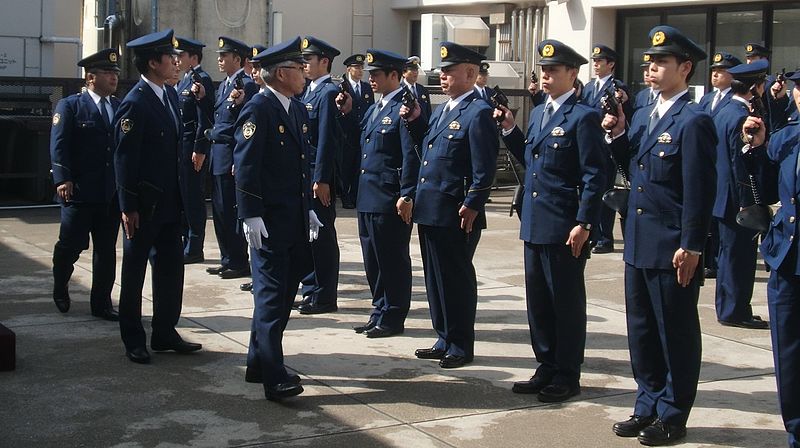On this date, December 23, 1948, Seven
Japanese convicted of war crimes by the International Military Tribunal for the Far East
are executed at Sugamo Prison
in Tokyo, Japan.
 |
|
Martyrs of Shōwa" (昭和殉難者 Shōwa junnansha)
|
Hideki Tōjō (Kyūjitai: 東條 英機;
Shinjitai: 東条 英機; Tōjō Hideki (help·info))
(December 30, 1884 – December 23, 1948) was a general of the Imperial
Japanese Army (IJA), the leader of the Taisei Yokusankai, and the 40th Prime
Minister of Japan during most of World War II, from October 17, 1941 to July
22, 1944. As Prime Minister, he was directly responsible for the attack on
Pearl Harbor, which initiated war between Japan and the United States, although
planning for it had begun before he entered office. After the end of the war,
Tōjō was arrested, sentenced to death for Japanese war crimes by the
International Military Tribunal for the Far East, and was hanged on December
23, 1948.
 |
|
General Iwane Matsui 松井石根
|
Iwane Matsui (松井 石根 Matsui
Iwane, extra 27 July 1878 – 23 December 1948) was a general in the Imperial
Japanese Army and the commander of the expeditionary forces sent to China in
World War II. He was convicted of war crimes and sentenced to death by hanging
by the International Military Tribunal for the Far East for responsibility over
the Nanking Massacre.
 |
|
Japanese general 武藤章 Akira Mutō (15
December 1892 – 23 December 1948)
|
Akira Mutō (武藤 章 Mutō Akira, 15
December 1892 – 23 December 1948) was a general in the Imperial Japanese Army
during World War II.
 |
|
japanese spy Doihara Kenji during the trial
for war crimes at International Military Tribunal for the Far East (1948)
|
Kenji Doihara
(土肥原 賢二 Doihara
Kenji, 8 August
1883 – 23 December 1948) was a general in the Imperial Japanese Army in
World War II. He was instrumental in the Japanese invasion of Manchuria for
which he earned fame taking the nickname 'Lawrence of Manchuria', a reference
to the Lawrence of Arabia,
although according to Jamie Bisher this flattering sobriquet was rather
misapplied given that T.E. Lawrence fought to liberate, not to oppress a
people. Furthermore, according to the opinion of his military chief in
Manchuria Gen. Kanji Ishiwara, his heavy addiction to the opium contributed to
his unreliability as an army officer.
As
a leading intelligence officer he played a key role to the Japanese
machinations leading to the occupation of large parts of China, the
destabilization of the country and the disintegration of the traditional
structure of the Chinese society in order to diminish reaction to the Japanese
plans using highly unconventional methods. He became the mastermind of the
Manchurian drug trade, and the real boss and sponsor behind every kind of gangs
and underworld activities in China (see Controversy section). After the end of
World War II, he was prosecuted for war crimes in the International Military
Tribunal for the Far East. He was found guilty, sentenced to death and was
hanged in December 1948.
 |
|
General
Seishirō Itagaki (板垣
征四郎 Itagaki Seishirō)
|
Seishirō Itagaki (板垣 征四郎 Itagaki Seishirō, 21 January 1885 – 23 December 1948) was a General in the Imperial
Japanese Army in World War II and a War Minister. Convicted of war crimes, he
was executed in 1948.
 |
| Kōki Hirota (廣田 弘毅 Hirota Kōki) |
Kōki Hirota
(廣田 弘毅 Hirota Kōki, 14 February 1878 – 23 December
1948) was a Japanese diplomat and politician who served as the 32nd Prime
Minister of Japan from 9 March 1936 to 2 February 1937. Originally his name was
Jōtarō (丈太郎?). He was executed for war crimes
committed during World War II.
 |
|
General Heitarō Kimura
|
Heitarō Kimura
(木村 兵太郎 Kimura Heitarō (sometimes Kimura
Hyōtarō), 28
September 1888 – 23 December 1948) was a general in the Imperial Japanese Army.


No comments:
Post a Comment